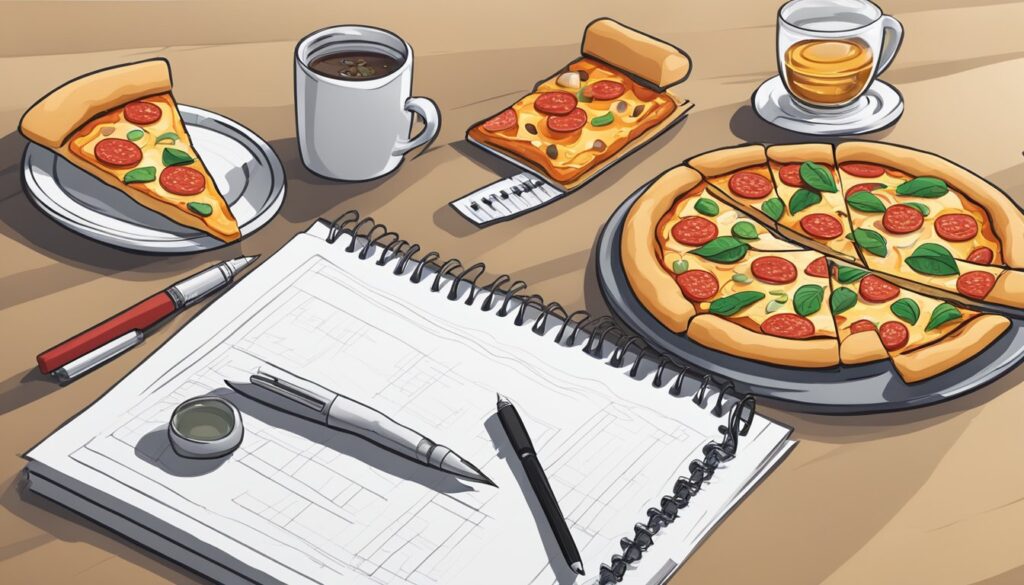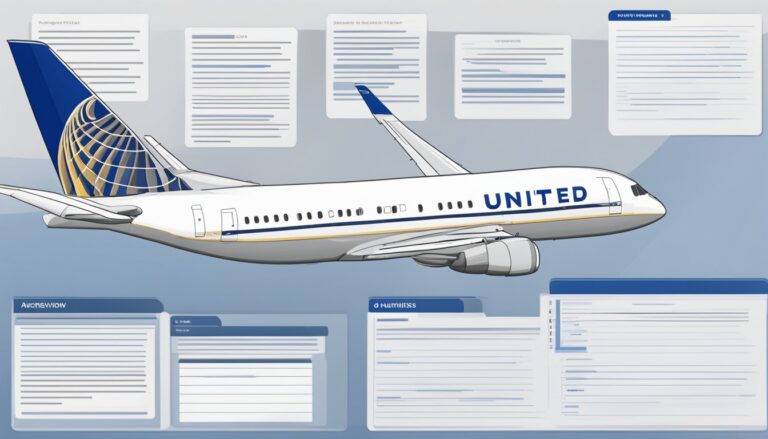50 Best Strategies for Nailing a Restaurant Job Interview

Nailing a restaurant job interview requires a blend of industry-specific knowledge, general interview skills, and an understanding of the unique culture and needs of the restaurant you’re applying to. Here are 50 strategies and tips to help you make a great impression and maximize your chances of getting hired in a restaurant role:
Page Contents
- 1 Understanding the Restaurant Industry
- 2 Preparing for the Interview
- 3 Making a Great First Impression
- 4 During the Interview
- 5 Specific Skills and Experiences
- 6 Closing the Interview Strongly
- 7 After the Interview
- 8 General Tips
- 9 Advanced Strategies
- 10 For Specific Positions
- 11 Demonstrating Commitment
- 12 Cultural Fit
- 13 Advanced Preparation
- 14 Personal Branding
- 15 Professional Development
- 16 Networking and Industry Engagement
- 17 Closing the Deal
- 18 Post-Interview
- 19 List of 50 Sample Interview Questions for a Job in Restaurant
- 20 Conclusion
Understanding the Restaurant Industry
- Research the Restaurant: Understand its menu, history, and customer base.
- Know the Cuisine: Have a basic understanding of the types of food served.
- Understand the Role: Be clear on what your desired position entails.
- Learn the Lingo: Familiarize yourself with restaurant terminology.
- Dress Appropriately: Match the restaurant’s style and atmosphere.
Preparing for the Interview
- Update Your Resume: Tailor it to highlight relevant experience.
- Practice Common Questions: Prepare for questions specific to restaurant roles.
- Prepare Your Questions: Have insightful questions ready for the interviewer.
- Role-Specific Preparation: Understand the specific skills and knowledge required for the role, whether it’s a chef, server, or manager position.
- Mock Interviews: Practice with a friend or mentor familiar with the industry.

Making a Great First Impression
- Arrive Early: Aim to be 10-15 minutes early.
- Positive Body Language: Smile, make eye contact, and offer a firm handshake.
- Dress for Success: Even if the restaurant has a casual vibe, present yourself neatly.
- Be Polite to Everyone: Treat all staff members you meet with respect.
- Express Your Passion for Food and Service: Show genuine interest and enthusiasm.
During the Interview
- Show Your Personality: Restaurants look for individuals who fit their culture.
- Demonstrate Teamwork Skills: Share examples of how you’ve worked effectively in a team.
- Highlight Customer Service Experience: Even non-restaurant experience can be relevant.
- Discuss Handling Pressure: Be ready to talk about working in fast-paced environments.
- Mention Flexibility: Availability for shifts can be a deciding factor.
Specific Skills and Experiences
- Talk About Sales Skills: Especially for server and bartender positions.
- Culinary Knowledge: Chefs should be ready to discuss their culinary background.
- Management Skills: If applying for a management role, highlight leadership experience.
- Problem-Solving Abilities: Share examples of handling difficult situations.
- Attention to Detail: Critical for all positions, from the kitchen to the front of the house.
Closing the Interview Strongly
- Express Enthusiasm: Make it clear you’re excited about the opportunity.
- Ask About Next Steps: Show your eagerness to move forward in the process.
- Thank the Interviewer: Send a follow-up thank-you note or email.
- Highlight Your Fit for the Role: Recap why you’re a good match for the position.
- Ask for Feedback: If appropriate, ask for immediate feedback to show your desire to improve.
After the Interview
- Follow Up: A brief thank-you email or note can set you apart.
- Reflect on the Interview: Note questions that stumped you or areas to improve.
- Stay Patient: Hiring processes can vary in length.
- Continue Applying: Don’t stop your job search until you’ve secured a position.
- Network: Use this opportunity to expand your network in the restaurant industry.
General Tips
- Stay Positive: Maintain a positive attitude throughout the process.
- Be Honest: Don’t exaggerate your experience or skills.
- Listen Carefully: Good listening skills are as important as your ability to answer questions.
- Be Concise: Keep your answers to the point.
- Adapt: Be ready to adapt your answers based on the interviewer’s cues.
Advanced Strategies
- Leverage Social Media: Show your engagement with the food industry online.
- Portfolio of Work: Chefs can bring a portfolio of dishes they’ve created.
- References: Have a list of references ready, preferably from the hospitality industry.
- Know Your Worth: Be prepared to discuss salary expectations if necessary.
- Continuous Learning: Express your commitment to growing and learning in your role.
For Specific Positions
- Servers: Emphasize your ability to remember orders and manage multiple tables.
- Chefs: Be ready to perform a cooking test if asked.
- Bartenders: Discuss your knowledge of drink recipes and inventory management.
- Hosts: Highlight your organizational skills and ability to manage wait times.
- Managers: Show your understanding of restaurant operations, staff management, and customer service excellence.
By preparing thoroughly and demonstrating your passion for the role and the restaurant industry, you can significantly increase your chances of securing a job in a restaurant. Here are additional tips and strategies to ensure you stand out:
Demonstrating Commitment
- Long-Term Interest: Convey your intention to grow with the establishment.
- Reliability: Stress the importance of punctuality and dependability in your work history.
- Adaptability: Show you can quickly learn new skills and adapt to new roles.

Cultural Fit
- Understand the Brand: Discuss how your personal values align with the restaurant’s brand.
- Team Dynamics: Share how you’ve contributed positively to team environments in the past.
- Customer Focus: Highlight your dedication to providing exceptional customer experiences.
Advanced Preparation
- Menu Suggestions: Be prepared to offer ideas or improvements if it’s appropriate for the position.
- Stay Informed: Be aware of trends in the restaurant industry and be ready to discuss them.
- Conflict Resolution: Have examples of how you’ve successfully managed conflicts, either with customers or between staff members.
- Safety and Hygiene: Demonstrate your knowledge of safety and hygiene standards in the kitchen and dining area.
Personal Branding
- Online Presence: Ensure your social media profiles reflect a professional image.
- Personal Stories: Share personal stories that illustrate your passion and commitment to the culinary arts or hospitality industry.
- Unique Skills: Highlight any unique skills or experiences that set you apart from other candidates.
Professional Development
- Certifications: Mention any relevant certifications, such as food safety or alcohol service.
- Courses and Training: Discuss any additional courses or training you’ve completed that are relevant to the position.
- Feedback Implementation: Give examples of how you’ve used feedback to improve your performance in past roles.
Networking and Industry Engagement
- Industry Events: Talk about any restaurant industry events or conferences you’ve attended.
- Professional Associations: Mention if you’re a member of any professional associations related to hospitality or culinary arts.
- Mentorship: Share experiences where you’ve either mentored someone in the industry or have been mentored yourself, highlighting the value of learning from others.
Closing the Deal
- Express Gratitude: Always end the interview by thanking the interviewer for their time and consideration.
- Clarify Expectations: If you’re highly interested in the position, it’s okay to ask about the timeline for a decision or the next steps in the process.
- Show Flexibility: Make it clear you’re willing to work various shifts or roles as needed, especially in the early stages of your employment.
- Leave a Lasting Impression: Summarize your key strengths and express your eagerness to contribute to the team.
Post-Interview
- Evaluate the Opportunity: After the interview, take some time to reflect on whether the position and the restaurant are the right fit for you.
- Stay Engaged: If you don’t hear back within the expected timeframe, it’s appropriate to send a polite follow-up email reiterating your interest in the position and asking for an update.
Applying these strategies and tips will not only prepare you for a restaurant job interview but also help you build a strong foundation for a successful career in the hospitality industry. Remember, each restaurant has its own unique culture and expectations, so tailor your approach accordingly to make the best possible impression.
When preparing for a restaurant job interview, it’s beneficial to anticipate the types of questions you might be asked. Here’s a list of 50 sample questions that cover a broad range of positions within a restaurant, from front-of-house roles like servers and hosts, to back-of-house roles like chefs and kitchen staff, as well as management positions.
List of 50 Sample Interview Questions for a Job in Restaurant
- Can you tell us a little about yourself?
- Why do you want to work in the restaurant industry?
- What do you know about our restaurant and why do you want to work here?
- How do you handle stress and pressure, especially during busy periods?
- Describe your previous experience in hospitality or customer service.
- How would you define excellent customer service?
- Can you share an example of a time you received excellent service as a customer?
- What roles have you previously held in the restaurant industry?
- How do you keep up with high-volume orders?
- Describe your experience with point-of-sale systems.
- How do you handle a situation where a customer is unhappy with their meal?
- Can you discuss your experience with inventory management?
- Describe a time when you had to work closely with a team to achieve a goal.
- What is your approach to handling food allergies or special dietary requests?
- Describe a time when you had to work closely with others. How did you contribute to the team?
- How would your previous coworkers describe you?
- Have you ever had a conflict with a coworker? How was it resolved?
- What motivates you to do your best work?
- How do you handle feedback, both positive and negative?
- How do you deal with unhappy customers?
- Can you give an example of a time when you went above and beyond for a customer?
- What do you do if you don’t know the answer to a customer’s question?
- How do you prioritize tasks when you have multiple customers to attend to?
- How do you ensure that customers leave the restaurant satisfied with their experience?
- How do you handle difficult or demanding customers?
- What does good customer service mean to you?
- How do you prioritize tasks in a fast-paced restaurant environment?
- Can you describe a time when you had to work as part of a team to accomplish a goal?
- How do you handle stress during busy shifts?
- What’s your experience with handling cash transactions and managing a cash register?
- How do you ensure food safety and cleanliness in a restaurant setting?
- Can you discuss your experience with taking and delivering orders accurately?
- What do you think sets our restaurant apart from others in the area?
- How do you handle conflicts or disagreements with coworkers?
- Can you describe a time when you went above and beyond for a customer?
- What’s your availability for shifts, and are you willing to work weekends and holidays?
- How do you stay updated on food and beverage trends?
- Can you discuss your experience with upselling or suggesting additional menu items to customers?
- What do you think is the most important quality for a server/host/hostess in a restaurant setting?
- How do you handle a situation where a customer complains about their food or service?
- Can you describe a time when you had to multitask and manage several tables at once?
- What’s your approach to learning and memorizing menu items and specials?
- How do you ensure that all guests have a positive dining experience?
- Can you discuss your experience with using a POS (Point of Sale) system?
- What motivates you to work in the restaurant industry?
- How do you handle a situation where a customer has dietary restrictions or allergies?
- Can you discuss your experience with preparing and serving alcoholic beverages?
- What’s your approach to handling reservations and seating arrangements?
- How do you handle a situation where a coworker is not pulling their weight during a shift?
- Can you discuss your experience with maintaining cleanliness and organization in a restaurant’s dining area?
Conclusion
To wrap up, these 50 sample questions for a restaurant job interview cover a wide range of topics and scenarios that candidates may encounter in the restaurant industry. By preparing thoughtful and articulate responses to these questions, candidates can demonstrate their knowledge, experience, and suitability for the position.
Additionally, these questions provide a comprehensive overview of the skills and qualities that are essential for success in roles such as servers, hosts, bartenders, and other restaurant staff.
Ultimately, thorough preparation and a clear understanding of these interview questions can help candidates present themselves as strong and capable candidates during the restaurant job interview process.







